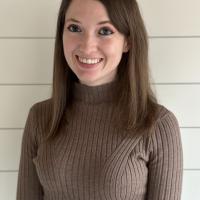Missing Black Women and Familial Inheritance at the Heart of New Exhibition at Urban Arts Space

Stirred by witnessing the impact of her great-aunt going missing, poet Ajanaé Dawkins is investigating the myriad ways that Black women go missing or lose themselves amid family archival.
Dawkins’s upcoming exhibition at Urban Arts Space, No One Teaches Us How to Be Daughters, explores the intimate relationships between Black women through the artist’s disrupted matrilineal archive, Black literature, faith, docu-poetics, and Afrofuturist imaginings. It complicates the question, “Where do Black girls go when they go missing?” while considering the epidemic of missing Black girls/women. This exhibition is a celebration of Black cultural and familial inheritance, a place of mourning, and an invitation to search for yourself.
No One Teaches Us How to Be Daughters is the culminating exhibition of Dawkins’s six-month Community Artist-in-Residence at Urban Arts Space, with the show running from July 11–August 3, 2024. During her residency, she has hosted a resource party emphasizing Black community-building and curated a pop-up exhibition, in addition to headlining a poetry reading.
Of how the show came to be, Dawkins shared, “I began writing about the idea of being missing, literally and metaphysically (or from the self/community/Spirit), a little over two years ago. I know the epidemic of missing Black women in this country intimately. I’ve lost myself more than a few times. It’s terrifying to not know where or who you are, even in the metaphysical. This exhibition is about locating the self, through myth or narrative, in the bloodline.”
Dawkins invited six artists whose work and personhood she’s learned from to contribute work on Black aliveness, ritual, grief, and intimacy in a group exhibition. From Imani Mixon, she learns about Black women as cultural pioneers and preservers. From Matthew Pitts, she learns about the necessity of humor and the microcosms in the Black mundane. From Brittany Rogers, she learns about adornment, ritual, and audacity. From Tyiesha Radford Shorts, she learns about the ethics of Black women as archivists, researchers, and interrogators of lineage. From Ky Smiley, she learns about observation and seeing as vital tools for community and art building. From Iyana Hill, she learns about curation, dreaming, and the way community expands our imaginations. Each of these artists has irrevocably shaped her own approach to art making and community.
Visitors are invited to celebrate the opening of the exhibition at the reception on Thursday, July 11 from 6–8 PM at Urban Arts Space. A free workshop, Artist Commune: Documentary Poetry, will be held on Friday, July 26 from 6:30–8:30 PM as part of the exhibition programming.

